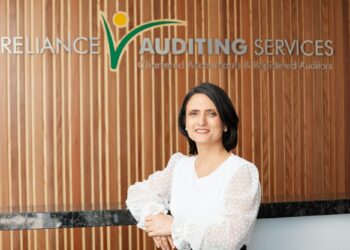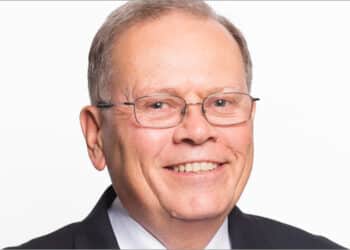In a recent podcast, Colonial First state senior technical services manager Linda Bruce reminded advisers that under the current rules, clients between the ages of 67 and 74 need to meet the work test before making a contribution.
However, from Friday next week this requirement will be removed, except where individuals wish to claim a deduction for their personal superannuation contribution.
Ms Bruce noted that clients who want to make a contribution need to make the contribution before the upper age limit which is 28 days after the end of the month in which they turned 75.
Under the new rules, if the client wants to claim a deduction for their contribution, they can meet the work test at any point during that financial year, she explained. This creates some potential traps particularly where the client starts a pension shortly after, she said in a recent FirstTech podcast.
She gave an example of Tony, who turns age 75 on 2 July 2022.
“The last day Tony can make a personal contribution is 28 August 2022. Beyond that point, the only contribution Tony can make is the downsizer contribution or if he’s working he can receive super guarantee contributions,” explained Ms Bruce.
“Tony’s total super balance is already over $300,000, so the work test exemption is out of the picture.”
Ms Bruce explained that Tony plans to work during the Christmas period acting as a Santa Claus in the shopping mall for photos.
“Tony will be able to satisfy the work test as soon as the Christmas period is over but he won’t be able to satisfy the work test before then,” she stated.
With the existing rules that apply till 30 June, Ms Bruce said Tony wouldn’t be able to contribute because he hasn’t met the work test.
“Under the new rules, however, Tony can still make the contribution [as long as] it’s before the cut off date, 28 August. He just needs to ensure he does at least 40 hours of work within a 30 day period anytime during the financial year in order to to claim a deduction for the personal contribution he made.”
As Tony has carry forward contributions available, he contributes $100,000 as a concessional contribution and then lodges a notice of intent with the super fund. He then commences an account based pension.
“Once the fund receives the valid notice of intent, the $100,000 then becomes assessable income in the super fund and the fund takes out the 15 per cent contributions tax. So, $15,000 is taken out and the $85,000 moves into pension phase as per Tony’s request.
However, if Tony is suddenly unable to work during the Christmas period due to unexpected circumstances such as sickness, Ms Bruce said he will then be left in a situation where he can no longer meet the work test as planned.
“As a result, he will not be able to claim the personal contribution as a deduction. The ATO will then count that contribution against Tony’s non-concessional contribution (NCC) cap,” she explained.
“Now, this may not be an issue if Tony has NCC cap to use, but clients in that situation may have already maximised their NCC cap by contributing $330,000 before the last cut off date.”
As a result, Ms Bruce warned that Tony has now breached his NCC cap and will receive an excess non-concessional contributions determination letter from the ATO.
“Under normal circumstances, he could have gone back to the fund and a lodged a variation to the original notice of intent and reduced the intended deduction amount from $100,000 to $0 so the fund could refund the $15,000 in tax that they have taken out of Tony’s account,” she said.
“However, there’s a catch with the notice of intent, the moment that Tony commenced the pension, he lost the ability to go back to the fund to vary the notice of intent for good.
“[This means] that Tony has breached the non-concessional contribution cap by $100,000 as $15,000 has been taken out of the $100,000 by the super fund and the remaining $85,000 will be kept in the fund in person phase as part of the taxable component. It’s really disastrous.”
Speaking in the same podcast, Colonial First State head of technical services Craig Day also added that Tony will also no longer be able to claim a tax deduction on the $100,000 that he contributed.
Mr Day warned that many clients aren’t aware that they can’t vary their deduction notice once they’ve commenced a pension.
“It’s a reasonably common mistake. People make their contributions and then start their pension and that’s going to be [more common] with the new rules removing the work test for those between 67 and 75,” said Mr Day.
For clients who want to claim a deduction for a contribution and are not particularly close to the upper age limit, Ms Bruce advised it is best for them to meet the work test first before making the contribution.
“For clients like Tony who are close to that upper age limit, they can’t wait to make the contribution. What these clients can do is make the contribution before reaching the upper age limit, but hold off lodging the notice of intent and commencing the income stream as planned until the work test is completed,” she said.
“That minimises the risk to some degree.”



The changes to the work test will be a wake up call for many clients and their advisers. Passing the work test from 1 July 2022 requires the taxpayer over age 67 to make a work test declaration in their personal tax return if claiming a personal deduction for concessional contributions.
It is no longer up to the receiving super fund to decide, or accept a flimsy declaration or letter, with no substantiation.
Expect a whole lot more ATO scrutiny with the work test being automated like this.
Some members sign these declarations or letters or tick a box that they are self employed and don’t even have an ABN! Now, that self employment income must be in your tax return if it is to match your declaration.
Making a false declaration on your personal income tax return is a much more serious offence for a taxpayer, than under the SIS regulation it replaces.
The work test requirement applies on a per financial year basis. If Tony meets the work test in Dec 2021 then that only enables him to contribute up until 30 June 2022. Pass 1 July 2022 we will enter into a new FY, where the work test rule is changed. Work test becomes a condition for claiming a deduction on personal contribution rather than a condition to contribute. Linda’s comment hits the nail on the head regarding the potential traps as a result of this change. One thing I agree with Patrick though is that attention to detail [b]is[/b] indeed essential.
Umm this is no different to taxpayers/SMSFs acting on future anticipated delayed legislation (eg the delays in passing the 65-67 extension of the work test rules years ago)… “You can do this thing on the presumption that it really will be law in time but the risk is on you if it backfires”
Same here, you can make a concessional contribution anticipating passing the work test later in the year, but if you fail to meet the test that is on you.
I do not know enough background to Tony’s super/circumstances but it would be highly unusually for anyone that old who knows enough about the bring forward concessional contributions and NCC to not have already been advised about pensions. So the probability is that every year since he met a condition of release a pension is started by 30 June to convert accumulation mode balances to pension to save tax.
He’d be wise to delay the start of the pension utilising the new funds contributed and instead rely on Lump Sums/existing pension(s) until he passes the work test. (avoiding this worst case scenario at the expense of a few hundred dollars of extra tax)
For what it’s worth, its interesting that while the work test exemption is one-off in nature, given that it won’t be required to make non-concessional contributions, it is redundant for the purposes making non-concessional contributions, however, it is relevant for those with TSB < $300,000 in making PDCs, including catch up concessional contributions. My reading of the law (ITAA 1997 290-165) is that it is also possible for someone in the 19-20, 20-21 or 21-22 FY to have used the exemption for the purposes of making a NCC contribution but it doesn't prevent the same person in using the one-off work test exemption to make personal deductible contribution. Therefore, it is possible for an individual to have used the one-off work test exemption to use it until 30 June 2022 for NCC only and then to use it from 1 July 2022 for PDC purposes....
I think 290-165 (1) (iv) puts a stop to that. It really is a one-off work test exemption to make NCCs and PDCs.
In these circumstances, wouldn’t Tony be advised to make the $100,000 contribution to a separate fund / account / interest (noting that SMSFs can only have one accumulation interest)?
Assuming that the pension commencement is not just isolated to the intended PDC, this would allow pension commencement from the other retirement savings and with passage of time and clarity on the ability to claim a tax deduction on the super contribution, provide a basis to move forward once the work test issue has been clarified?
The opportunity cost of waiting until work test has been satisfied is naturally the loss of tax-free earnings in retirement phase but if that comes at the pitfall of unnecessarily losing the ability to recoup 15% contributions tax, then so be it.
Great article Linda, highlighting potential pitfalls when interacted with non-concessional contributions cap when a contribution is ineligible for a PDC, Notice of Intents and Variation of Notice of Intents.
Arguably, we need more guidance from the ATO on gainful employment now that the ‘work test’ is enshrined into ITAA 1997. To date, there really hasn’t been much guidance from the ATO as it has traditionally been a SIS matter so I wait with bated breath their future guidance on ‘work test’ issues on niche scenarios such as baby sitting, AIR BnB, looking after investments and properties etc
To Patrick’s point, not sure whether he is inferring directly to the one-off work test exemption. I agree with Patrick that meeting the work test in December 2021 may be sufficient to meet the work test for the personal deductible contribution but only if the person’s total super balance was below $300,000 on 30 June 2022 and that the one-off work test exemption had not been used since 1 July 2019
Great article thanks. The factual matrix was that Tony expected to work Xmas 2022 in order to satisfy the work test in FY2023 and hence be able to claim the personal concessional contribution made by Aug 2022 as a tax deduction. The point being the WT can be satisfied at any stage in FY on contribution, even after the milestone age is passed – new rules.
S290-170 Notices are fraught and trip so many people up.
I think what they are trying to say is that Tony made personal CC before Aug 21 and anticipated that he would work during Dec 2021 to satisfy the work test. However, provided he is actually not able to work due to unforeseeable reasons and he started a pension, he would be in a bad position.
If he works December 2021 then he’s met the work test in the 2021-22 financial year. The contribution made in August 2022 falls into the 2022-23 financial year and he is yet to meet the work test in that FY. The article is correct
I note in the example: “Tony typically works every year during the Christmas period”. So if he has worked the 40 hours within 30 days in December 2021 it is my understanding that this is sufficient for the personal deductible contribution made on or before 28 August 2022. Attention to detail is essential, but it seems this may be lacking in the article.
In order to make a “personal deductible contribution”, someone needs to make a personal contribution to the super fund first and then claim that personal contribution in the tax return as a deduction. It’s not possible to make a personal deductible contribution directly to the super fund. In any case, the work test rules are changing. An individual between age 67 and 75 no longer needs to meet the work test to make a personal super contribution from 1 July 2022, but 67 – 75 people still need to meet the work test during the financial year to be able to claim the personal contribution as a tax deduction. If Tony meets the work test during Xmas period in 2022, after making the super contribution before he reached the deadline in August, he then may be able to claim a deduction in his tax return. However, if he fails the work test during the financial year, he is not eligible to claim that super contribution as a deduction. The ATO says the same thing here as what was included in this article: https://www.ato.gov.au/Individuals/Super/Withdrawing-and-using-your-super/Repealing-the-work-test-for-voluntary-super-contributions/
You need to meet the work test in the same financial year, So December 2021 only covers the 2021/22 year.
The work test requirement applies on a per financial year basis. If Tony meets the work test in Dec 2021 then that only enables him to contribute up until 30 June 2022. Pass 1 July 2022 we will enter into a new FY, where the work test rule is changed. Work test becomes a condition for claiming a deduction on personal contribution rather than a condition to contribute. Linda’s comment hits the nail on the head regarding the potential traps as a result of this change. One thing I agree with Patrick though is that attention to detail is indeed essential.